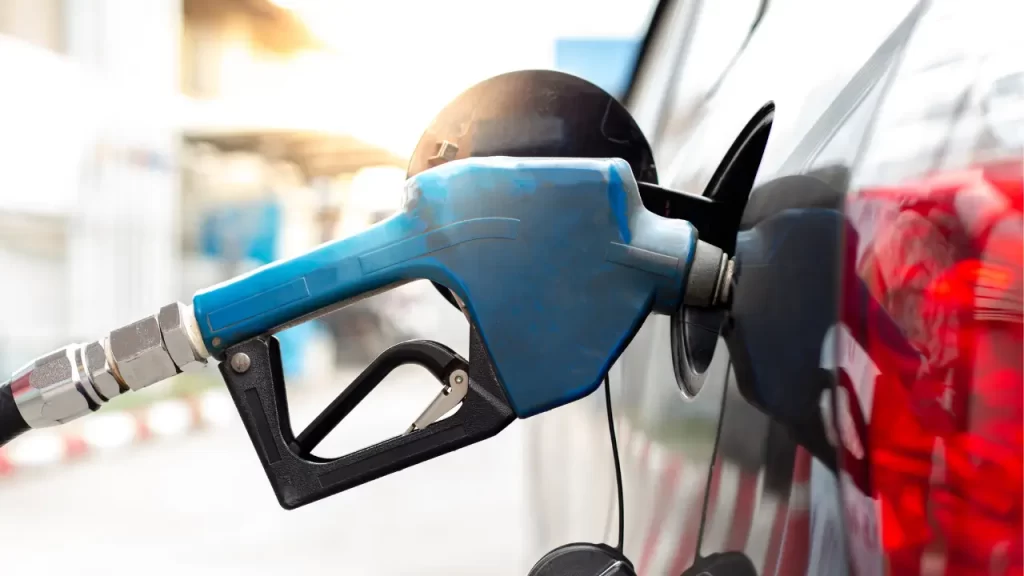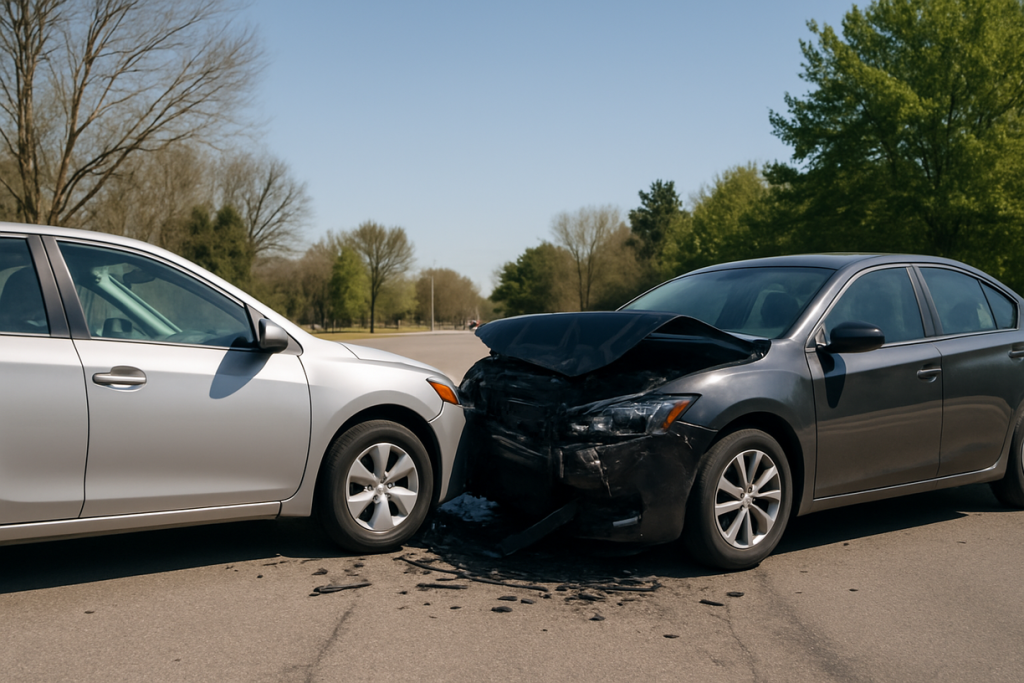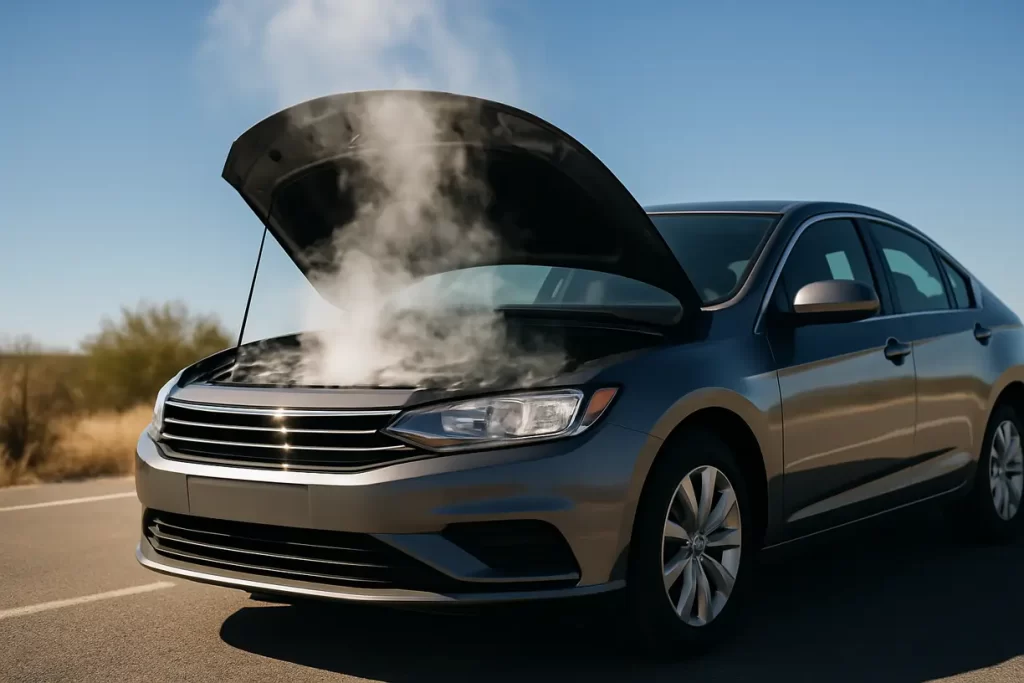How Often Should You Replace Your Car’s Air Filter?
Changing the car’s air filter is not a simple task but a very necessary one if one wants to keep the engine in good condition. Most carmakers recommend replacing the air filter every 12,000 to 15,000 miles or once a year, depending on what comes first. This suggestion is for those drivers who mostly do city and highway driving without any extraordinary circumstances.
But the fact is very different. If you are driving on dusty paths unfamiliar to you, off the beaten track in the country, or even riding along off-roading trails, then the filter in your vehicle will have to work much harder. Dust, dirt, and debris will chorally make the filter clog faster, thus reducing its life. In such conditions, changing the air filter every 6,000-10,000 miles is definitely a good idea.
High-performing or top-quality filters not only extend their life but also set a limit of 30,000 miles if used in perfect conditions. These filters usually employ innovative materials aimed at catching the fine particles without affecting the airflow. However, ongoing monitoring is still required, and the mileage should not be an excuse for lazy work.
Here is a quick manual to stick to:
- Normal driving: Change every 12,000-15,000 miles or annually.
- Harsh/dusty conditions: Verify and substitute 6,000-10,000 miles.
- Premium filters: They may last up to 30,000 miles but still need regular inspections.
You need to understand that mileage is just one factor. Your driving style, air pollution in your area, and even the time of the year can influence how quickly your filter will be contaminated. And as a result of your filter not getting clogged fast, it guarantees not only the engine’s safety but also fuel efficiency and emission reduction. The clean filter helps your car run like new—don’t let it suffocate.
How Long Does an Air Filter Last in a Car?
Generally, the air filters have a lifetime of 12000-15000 miles. Under usual driving conditions and with a typical car, this number reflects the mileage of most daily drivers who are mostly commuting along paved roads with moderate air quality. The actual duration of an air filter’s life, however, could be different depending on some conditions that may either shorten or lengthen the filter’s service life.
The most significant factors that directly influence the filter lifespan are
- Filter quality: Newport (OEM) filters usually give reliable performance, while some aftermarket filters may change materials and durability. Premium filters are supposed to last longer due to the existence of better filtration media.
- Driving environment: The dusty and polluted conditions or off-road conditions not only lead to the dirty deposit of air filters but also accelerate the blockage of air filters. Take, for instance, a country or desert drive that will be full of dirt and debris, which will make the filter lifespan as low as 6,000 to 10,000 miles.
- Driving habits: In stop-and-go traffic, repeated short trips where the engine doesn’t warm up fully, the filter can get contaminated quicker than in steady highway driving.
- Maintenance and inspection: If you check the filter regularly, you will find out if it is clogged early, so you can replace it in time without the performance being seriously lost.
Gradually, the filter material holds dust and particles, and hence filters become dirty, thereby reducing the airflow to the engine. Reduced airflow could lead the engine to work harder, which results in lower fuel efficiency and power output. This is the reason why, even if you think you haven’t yet reached the mileage limit, it is still a good idea to inspect the filter regularly, specifically in harsh environments.
In conclusion, although 12,000 to 15,000 miles is a rough estimate, the lifetime of your filter is mainly determined by the quality, environment, and how you drive. Monitor it, and change the times of replacement in accordance with your circumstances. This not only ensures that the engine is protected but also that your car is running in an efficient manner.
How Do I Know If My Car Air Filter Needs Replacing?
Recognizing when your car’s air filter is getting old and needs to be changed can go a long way in avoiding engine problems, as well as saving you a lot of money on repairs. The simplest method of checking is a quick visual inspection. To do this, open the hood, pull the filter out of its housing, and hold it to the light. If the filter appears to be dark, full of dirt, or covered with debris, then definitely it needs to be replaced.
Besides the look of the filter, several other issues can indicate a dirty air filter:
- Reduced engine power: Your car feels sluggish or it struggles to accelerate because the clogged filter restricts airflow.
- Lower fuel efficiency: A decrease in fuel consumption number usually indicates that the engine is not provided with enough air for the best combustion.
- Rough idling or unusual engine noises: The dirt that has accumulated may cause the ignition to be uneven or some unexpected noises to occur.
- Check engine light: The computer in your car might have sensors that are able to detect if there is a problem with the airflow, and in this case, it will turn on the warning light.
- Black smoke from the exhaust: The insufficient air supply produces incomplete fuel combustion; therefore, if black smoke or a strong fuel smell is observed, it is caused by this problem.
If any of these symptoms are observed, the first step should be the inspection of the air filter. The air filter is generally easy to remove: you only need to open the air filter box, either unlatch the clips or unscrew the fasteners, and then remove the filter. If you decide to hold it up to the light, and it barely passes through, it means that the filter has to be replaced immediately.
Regular checks are especially important if you drive in dusty or polluted areas. A clogged filter not only reduces performance but also can lead to spark plug fouling and long-term engine damage. Waiting too long to replace it can mean bigger problems down the road.
Don’t wait for a warning light or a major issue to appear. Use your eyes and ears—visual inspection combined with paying attention to your car’s performance changes is the best way to know when it’s time to replace the air filter. Staying proactive keeps your engine healthy and your ride smooth.
What Happens If I Don’t Change the Air Filter in My Car?
Forgetting to change your car’s air filter can cause a series of problems that affect performance, fuel economy, emissions, and even engine health. The air filter’s job is to catch particles of dirt, dust, and other debris so that the engine does not have to deal with that. When it is dirty, it drastically reduces the airflow, which is like the engine running without the air it needs.
Below are the main consequences of neglecting to change the air filter in your car:
- Lower fuel efficiency: A dirty filter blocks the oxygen supply that is necessary to burn the fuel efficiently. The engine tries to maintain the same output by using more energy, which means that you will see a decrease in miles per gallon and also spend more money at the gas station.
- Loss of engine power and sluggish acceleration: With restricted airflow, the engine cannot get enough oxygen, so there will be no quick response from the throttle and less power during acceleration.
- Higher emissions and pollution: When there is not enough air, the combustion of fuel will be incomplete, and tons of harmful gases such as carbon monoxide and unburnt hydrocarbons will be released into the atmosphere, which is the main reason for pollution, and your car can fail the emissions test.
- Potential engine damage: After a long time, a dirty filter may start releasing small particles that will act as abrasives on the engine parts, thus causing the wearing of pistons and cylinders, which are the main parts of the engine. This will result in high repair costs and an engine with a reduced lifespan.
- Spark plug fouling: When the air supply is low, the above unburnt fuel will create carbon deposits on the spark plugs, which leads to misfires, rough idling, and difficult starting.
- Poor air quality inside the car: A clogged engine air filter in some vehicles can indirectly affect cabin air quality; thus, driver and passenger comfort may be impacted.
Neglecting air filter servicing will not definitely cause immediate breakdowns; however, the slow and gradual decline in the engine’s health and efficiency will accumulate, leading to a situation where higher-cost repairs are needed and car reliability will be compromised.
Changing your air filter regularly is a simple and inexpensive method for keeping your car in good condition and ensuring that you get the most from your investment. It enables your engine to breathe clean air, be efficient, and emit less pollution. Do not wait until the problems appear; follow the manufacturer’s instructions or even check it more often if the driving conditions are dusty or harsh.
How to Replace Your Car’s Air Filter
Replacing a car’s air filter is quite easy and manageable without requiring much time and no special tools. To begin with, just open the hood and find the air filter housing. The air filter housing is usually a black plastic box near the engine that is held by clips or screws. After locating it, gently remove the clips or unscrew the housing to open it. Try not to use too much force because plastic parts may be brittle if they have been used for a long time.
Following that, remove the old air filter. It would be best if you were careful that when putting the new filter in, it should be placed the same way as the old one was so that it fits the space correctly and forms a good seal. Also, before placing the new filter inside, you might want to give a quick clean to the filter housing with a vacuum or rag to get rid of the dust and prevent it from getting into the engine while you are working.
Put the new air filter in the compartment, ensuring it fits tight and flush with the edges. A gap is very bad, as it can cause the filtered air to leak through the filter without any filtration process and thus can be the source of the problem if your engine gets damaged. After the filter is in place, close the housing and fasten the clips or screws tightly.
Almost all vehicles don’t require special tools for this task, usually just a screwdriver if the fasteners are screws, and additionally, maybe gloves, so your hands stay clean. When the engine is cool, it is the best time to do it because it will prevent burns or any other kind of injuries.
Check your vehicle owner’s manual to locate the air filter and also to make sure that you buy the right part for the replacement. Some cars are equipped with filters that are easy to reach; on the other hand, others need removal of parts for access, which can be difficult for beginners.
Doing the replacement of the air filter on your own is not only more economical, but also it gives you confidence that the car’s essential part has been serviced properly. If you are not certain or have some difficulties, then professional mechanics can solve it very quickly for you. A clean air filter can help your engine inhale more efficiently, which can lead to better performance and fuel efficiency.
Related Questions and Extended Topics
Many car owners are unsure if they can verify or change their air filter without professional help. The good thing is that in most cases, changing the engine air filter is a very easy job that only needs a few tools and some basic knowledge of the car’s mechanics. Owner’s manuals usually have clear instructions, and there are plenty of online videos that can show you the steps to do it. Still, if you are not sure about what you are doing under the hood or it is difficult to reach the vehicle’s filter, going to a professional is the safest option.
Another common issue that comes up is the price. A regular air filter for replacement will set you back $20-$50 usually, depending on the brand and vehicle model. High-end or reusable filters might cost more initially, but if they perform better and last longer, you can consider them as money saved in the long run. For instance, some washable filters can be cleaned and reused several times, thus reducing waste and replacement frequency.
It is also essential to know that engine air filters and cabin air filters serve different purposes. The engine air filter takes the place of a filter in the intake that ensures an engine operates at its best, while the cabin air filter eliminates all the dirt and allergens coming from outside; therefore, clean and purified air enters the interior for passengers’ health and comfort. Both need to be changed from time to time, but usually the frequency of the change is not the same.
Many drivers ask where to get their air filters replaced. For instance, options include dealerships, independent auto shops, and even some quick-service centers. However, DIY replacement is also popular for those who want to save money and enjoy hands-on maintenance.
To select the most suitable air filter for your car, you need to think about the vehicle’s specs, the type of roads you drive on, and your own wishes. OEM filters provide compatibility, while aftermarket ones may have better filtration or airflow. Certifications and reviews are good to check.
At last, a clean air filter is a good thing for emissions and the environment because it makes combustion more efficient and less polluting. It is possible to improve these benefits even more by switching to premium or reusable filters, which will make the car environmentally friendly and still powerful.


